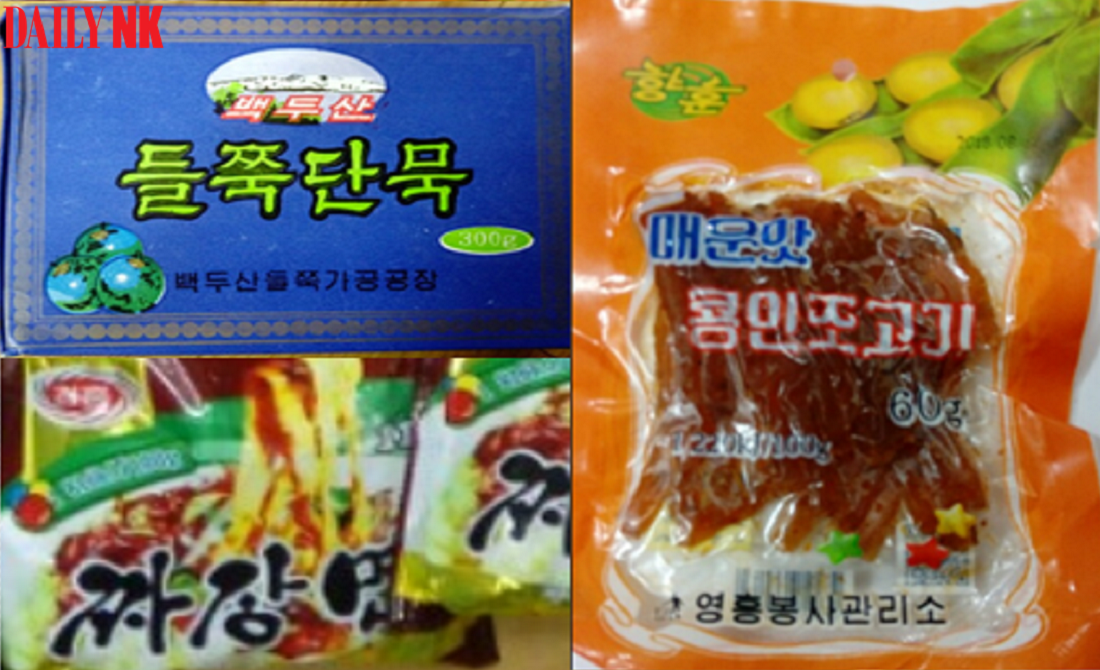
Unification Media Group (UMG): I’m here with reporter Kang Mi Jin and today we’re going to be discussing trends in the North Korean market. Lately in South Korea, market prices have been on the rise due to an intense heat wave. Is the same thing happening in North Korea?
Kang Mi Jin (Kang): Yes, it’s predicted that prices will increase after the recent unusual heatwave combined with torrential rain. Especially with Chuseok fast approaching, many North Koreans are worried about the aftermath of the tough farming season caused by the record-breaking temperatures this year.
Although we’re in the fall, it’s being reported that prices for corn and other commodities are going up. With Chuseok on the horizon and the prices of agricultural products expected to rise even more, the citizens of North Korea are quite worried.
UMG: I heard that even blueberries, which were said to have stabilized in price after the harvest season started, are becoming more expensive.
Kang: Blueberries were only 38,500 KPW per kilogram last year in Ryanggang Province but are now being sold for 40,000 KPW, which is subsequently impacting other products that use blueberries as an ingredient.
A bottle of Deuljjuksul Gold, a North Korean alcohol fermented with blueberries, usually goes for 3,000 KPW per bottle and 4,000 KPW for a more aged variety, but this year prices have skyrocketed to almost 5000 won. One of our sources reported that this increase in price is causing most people to resort to buying alcohol made by small-scale vendors or are making the alcohol themselves at home.
UMG: So due to the wealth inequality in North Korea, the upper class can afford luxury products, while the low-middle class have to make do with cheaper goods.
Kang: Since we’re talking about alcohol, inequality can also be seen in the purchase of food that is commonly consumed with alcohol. For example, families that are well-off will purchase packaged sausages, shellfish, octopus, and spicy soy meat. However, families that are going through economic difficulties often choose unpackaged, cheaper versions of the same types of food.
UMG: In South Korea this is usually associated with the growing gap between the rich and the poor, but in North Korea the phenomenon has been going on for quite a while, right?
Kang: Yes, this gap started to widen after restrictions on the market economy were lifted in 2010. When the restrictions were still in place, the profits that could be earned in the market were limited. But after things became more relaxed, just like the famous saying by John Ray, ‘money begets money’, those with a large amount of capital began to earn more money, while those without money began to fall behind, causing the gap between classes to grow at an alarming rate.
UMG: As a result, it seems like everyday life in North Korea has changed quite a bit.
Kang: There have been ripples all across the country, not only in everyday life, but also in important occasions such as coming of age ceremonies, weddings, funerals, and ancestral rites. Those with money are buying more expensive products when they shop at the market, while those without are shopping cheaper. In particular, high-end electrical goods have become sought-after merchandise in the markets. Also, with people getting ready for weddings in the fall, class inequality can be seen in wedding plans and accessories.
UMG: What’s our next topic?
Kang: The prevalence of high interest loans is predicted to decrease this year. North Korea started a crackdown on these types of loans in early March after public outcry and accusations that they are ‘anti socialist’. Due to the hard pushback by locals on this issue, the number of victims of loan sharks should fall this year.
Typically, most people took out loans twice a year, once in spring and once more during the barley hump, a tough period between June and July when the spring harvest has all but ran out, but fall harvest hasn’t started yet.
*Translated by Brian Boyle

















